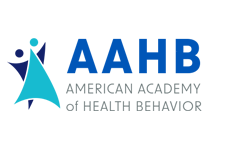Abstract
Social media platforms like Instagram serve as an important mechanism for transmitting social information and influence. However, the nature and use of these platforms are known to perpetuate eating disorders (EDs) or further disorder eating symptoms. This concept paper proposes merging health behavior and communication theory to create a comprehensive and applicable framework for remediating pro-eating disorder social media content among people who have eating disorders. To this end, the Social Media Wellness Model, which is adapted from the Health Belief Model, the Uses and Gratifications approach, the MAIN model of media affordances, and media literacy training, is proposed. This paper shows how theoretical model components can be mapped back to behaviors typified by individuals with EDs, or those predisposed to developing EDs. Subsequently, we propose a training intervention to highlight salient literacy cues, and outline next steps for testing and developing this model with the ongoing support of a community advisory board (CAB). Creating a CAB with individuals who have lived experience of an ED or disordered eating, and who use social media, will be vital to testing the applicability of this conceptual Social Media Wellness Model for ED recovery.
Creative Commons License

This work is licensed under a Creative Commons Attribution-Noncommercial 4.0 License
Recommended Citation
Claydon, Elizabeth A.; Zullig, Keith; and Step, Mary M.
(2021)
"Leveraging Health Behavior and Communication Theories to Support Adolescent and Young Adults: Conceptualizing Social Media Wellness in Relation to Disordered Eating,"
Health Behavior Research:
Vol. 4:
No.
2.
https://doi.org/10.4148/2572-1836.1103
Included in
Community Health and Preventive Medicine Commons, Health Psychology Commons, Mental Disorders Commons, Psychological Phenomena and Processes Commons




